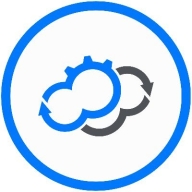

Cloudify and Morpheus compete in the cloud orchestration space. Morpheus offers a more feature-rich experience which makes it appealing despite higher costs, whereas Cloudify is favored for pricing and fast customer support.
Features: Cloudify focuses on open-source and multi-cloud environments. It supports all major cloud providers, offers extensibility for custom logic through plugins, and provides a stable, user-friendly platform with extensive troubleshooting features. Morpheus provides comprehensive multi-cloud management, self-service provisioning, and advanced automation capabilities. It also supports a wide range of third-party integrations, which makes it suitable for businesses with complex needs.
Room for Improvement: Cloudify could enhance user documentation and streamline its extensibility features. The platform might improve TOSCA support to facilitate easier automation for users. Increased integration options would also be beneficial. Morpheus might refine its user interface to simplify complex configurations. Its multi-cloud features can be optimized, and it could improve documentation for better utilization of all features.
Ease of Deployment and Customer Service: Cloudify offers straightforward deployment with rapid integration, bolstered by responsive customer service. The deployment process is user-friendly and quick to initiate. Morpheus provides a sophisticated deployment approach, suitable for larger enterprises that require extensive automation. It offers robust support, making it a preferred choice for complex implementations.
Pricing and ROI: Cloudify is characterized by lower setup costs, offering a cost-effective solution with satisfactory ROI for businesses on a budget. Morpheus requires a higher initial investment but justifies this with enhanced capabilities and greater long-term value, appealing to enterprises seeking a premium option. Cloudify's affordability is highlighted, while Morpheus provides extensive returns for higher initial investments.
| Product | Market Share (%) |
|---|---|
| Morpheus | 7.5% |
| Cloudify | 1.8% |
| Other | 90.7% |


| Company Size | Count |
|---|---|
| Small Business | 3 |
| Large Enterprise | 6 |
| Company Size | Count |
|---|---|
| Small Business | 5 |
| Midsize Enterprise | 3 |
| Large Enterprise | 3 |
Cloudify is an open-source orchestration-first cloud management platform. The solution allows applications to efficiently run across multiple cloud or data center platforms for premium multi-cloud infrastructure automation and orchestration. It provides infrastructure automation using environment as a service (EaaS) technology to deploy and continuously manage any cloud, private data center, or Kubernetes service from one central point while leveraging existing toolchains.
Cloudify Product Highlights
Cloudify Features
Cloudify has many valuable key features. Some of the most useful ones include:
Cloudify Benefits
There are many benefits to implementing Cloudify. Some of the biggest advantages the solution offers include:
Morpheus is a 100% agnostic cloud management platform (CMP) designed from the ground up to unify management of multi-cloud and hybrid IT while empowering DevOps teams with self-service provisioning of bare metal, VM, and container-based application services.
We monitor all Cloud Management reviews to prevent fraudulent reviews and keep review quality high. We do not post reviews by company employees or direct competitors. We validate each review for authenticity via cross-reference with LinkedIn, and personal follow-up with the reviewer when necessary.